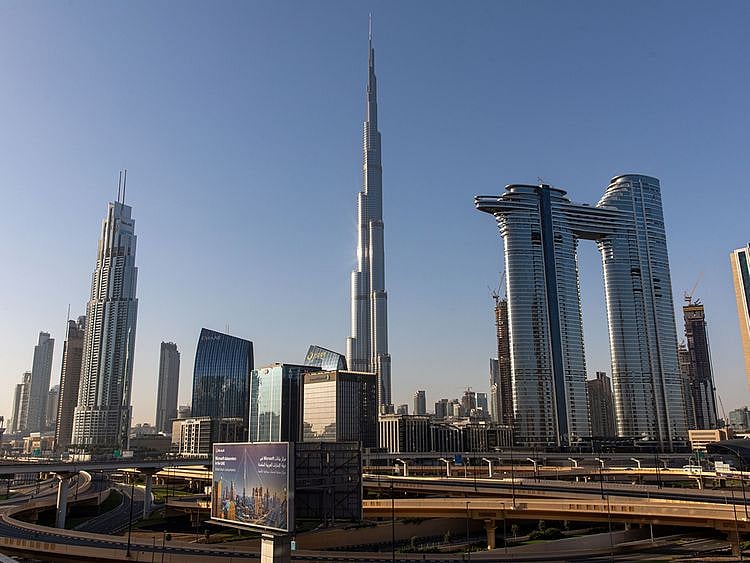Dubai surpasses pre-pandemic international visitation levels in first half of 2023
Dubai welcomes 8.55 million international visitors from Jan to June 2023

Dubai: Dubai welcomed 8.55 million international overnight visitors in the first half of 2023, surpassing levels of H1 2019, when the emirate saw 8.36 million tourists.
On a year-on-year basis, tourist numbers grew 20 per cent, data published by Dubai’s Department of Economy and Tourism (DET) showed.
Sheikh Hamdan bin Mohammed bin Rashid Al Maktoum, Crown Prince of Dubai and Chairman of The Executive Council, said: “The remarkable surge in international visitors witnessed by Dubai in the first half of 2023 further demonstrates its emergence as one of the brightest spots not only in the worldwide tourism sector but also the broader global economic landscape. This accomplishment has been made possible by the foresight of Dubai’s leadership, whose vision and prudent polices fortified its resilience in the wake of global challenges and enabled it to rebound more swiftly than other markets. While the growth of international visitation reinforces Dubai’s rise as a major global tourism destination, it also signifies its status as a pivotal hub for trade, investment and enterprise.
Also Read
Dubai’s hotels are primed to offer more ‘once in a lifetime experience’ – that helps with visitor countsDubai tourists given keyless access to holiday homesDubai’s tourist numbers up 18% in first four months of 2023Top tourist destinations: Where people are going on holiday in 2023“The Dubai Economic Agenda D33 has outlined an ambitious new trajectory for the city to further consolidate its status as one of the world’s top urban economies and tourism destinations. As a major pillar of Dubai’s economy, the tourism sector will continue to play a key role in realising its future aspirations.”
No.1 global destination
Dubai’s multifaceted offering and its readiness to cater to travellers of different budgets and preferences saw the city being crowned the No.1 global destination for the second successive year in the Tripadvisor Travellers’ Choice Awards 2023. This is only the second time in history that a city has won the coveted award for two years in a row.
Helal Saeed Almarri, Director General of Dubai’s Department of Economy and Tourism, commented: “This significant uplift in visitation, which surpasses both pre-pandemic levels and marks a new record for Dubai’s tourism sector, is the result of a highly coordinated, sustainable and robust strategy.
“These results further add weight to the depth, scale and resilience of Dubai’s tourism ecosystem, both domestically and across the world, all of which have been instrumental to supporting the city’s highly calibrated and agile strategy for advancing growth over the previous decade, mitigating risk and building a comprehensive framework throughout the entire value chain to drive our ambitions for the coming 10 years. It is the strength of these partnerships, and all our stakeholders, that continues to set us apart. We will continue to invest in such partnerships and all factors that drive the growth of tourism and economic sectors over the long term.”
Robust performance by key regions
In the first half of 2023, Western Europe emerged as a significant contributor to tourism arrivals, making up 20 per cent of the total international visitation, while the GCC and MENA regions delivered a combined 28 per cent of the regional share, demonstrating Dubai’s allure as a trusted and favoured destination for visitors from neighbouring markets. South Asia held a 17 per cent share of the total visitation, and Russia, CIS, and Eastern Europe combined contributed 14 per cent. North Asia and South East Asia contributed 8 per cent, while the Americas, Africa and Australasia contributed 7 per cent, 4 per cent and 2 per cent, respectively.
Hotels outperform
Dubai’s hotels outperformed pre-pandemic levels across all hospitality metrics in H1 2023 including occupancy, Average Daily Rate (ADR), Revenue Per Available Room (RevPAR) and length of stay. Among the highest in the world, Dubai hotels’ average occupancy of 78 per cent is 2.2 percentage points higher than the occupancy achieved for the same period in H1 2019. This growth is particularly noteworthy considering the 13 per cent increase in hotel establishments and 26 per cent increase in room capacity over the same period in 2019. Continued domestic and international investment into the sector further increased the hotel inventory, and by the end of H1 2023, Dubai’s visitors and residents could choose from a total of 810 hotel establishments and 148,689 rooms, compared to 714 hotel establishments that were open with 118,345 rooms at the end of H1 2019.
The average length of stay of guests increased to 3.9 nights (up from 3.5 nights in H1 2019), highlighting the city’s appeal for longer-stay travelers. The average daily rate (ADR) of Dh534 during the first six months of the year surpassed the ADR of H1 2019 (Dh444), a 20 per cent growth, while revenue per available room (RevPAR) of Dh415 in H1 2023, surged by 24 per cent compared to the first six months of the pre-pandemic period of 2019 (Dh336).
Issam Kazim, CEO, Dubai Corporation for Tourism and Commerce Marketing, said: “Within a highly competitive global tourism ecosystem, Dubai has continued to accelerate momentum and stay ahead of the curve, primarily by highlighting the diversity of the city’s offerings and the flexibility of our portfolio. Central to our success in showcasing Dubai as a must-visit destination is fostering multi-level partnerships between the public and private sectors.
Sign up for the Daily Briefing
Get the latest news and updates straight to your inbox
Network Links
GN StoreDownload our app
© Al Nisr Publishing LLC 2025. All rights reserved.